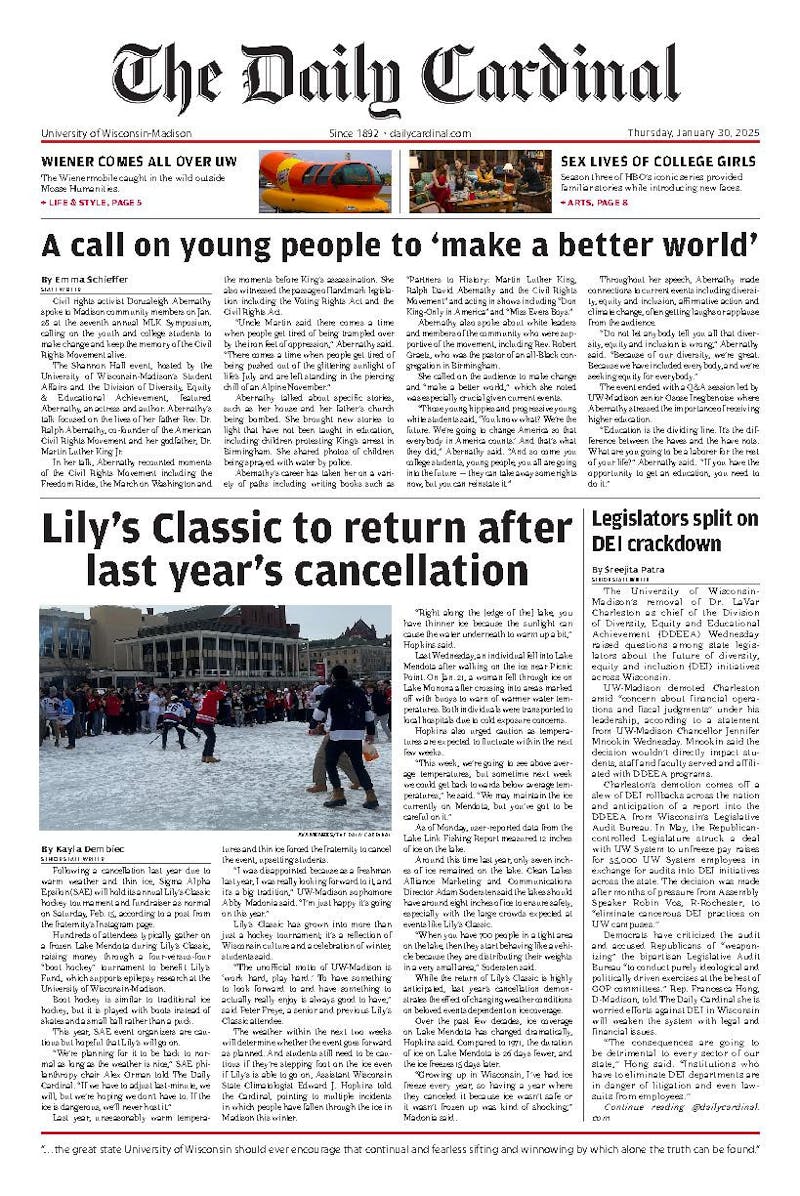A federal appeals court upheld the controversial Act 10 legislation that limited collective bargaining rights for public union employees Friday, reversing an earlier federal court decision that found portions of the bill unconstitutional.
The 7th Circuit U.S. Court of Appeals, based in Chicago, reversed a ruling made by Madison federal court Judge William M. Conley last year in a two to one decision. Conley previously ruled certain portions of the law, specifically those concerning withholding union dues and requiring mandatory yearly union voting for recertification, unconstitutional.
The 7th Circuit opinion, authored by Judge Joel M. Flaum, said both he and Judge William J. Bauer believed Act 10 should be “upheld in its entirety.”
The third judge on the panel, Judge David F. Hamilton, dissented from the official opinion in part, saying the portion of Act 10 allowing certain unions to have dues withheld, while simultaneously protecting unions like those for firefighters and police officers from such treatment violated the First Amendment. However, Hamilton agreed with the remainder of the decision.
Wisconsin state Republicans welcomed the ruling, saying it validates the hard work Gov. Scott Walker and other state Republicans put into the law and will help to ease the burden on Wisconsin taxpayers.
Republican Wisconsin Attorney General J.B. Van Hollen, who represented the state in court, said in a statement the decision to uphold Act 10’s constitutionality “confirms what [he has] stated from the beginning.”
Assembly Speaker Robin Vos, R-Rochester, said the decision will help taxpayers, and blamed the original ruling on what he said was a politically motivated judge.
“What we’ve seen in this case--and with so many others before it--is that a liberal Dane County judge made a political, not a legal, decision,” Vos said in a statement.
However, multiple state Democrats released statements in opposition to the decision, claiming it is a setback for middle class families and reverses progress the state had made on collective bargaining issues.
In a Friday statement, state Sen. Fred Risser, D-Madison, said he continues to support the rights of all workers to bargain collectively and will soon introduce legislation to restore collective bargaining for Wisconsin public employees.
State Assembly Minority Leader Peter Barca, D-Kenosha, used the ruling to call for more cooperation in state government, saying he hoped the decision would allow legislators to move away from political “favoritism” and “punishment” in favor of bipartisanship.
“We must find real solutions the Wisconsin way of sitting down together and rolling up our sleeves to tackle problems with all stakeholders to repair some of the damage that has been done by this law,” Barca said in a statement.





